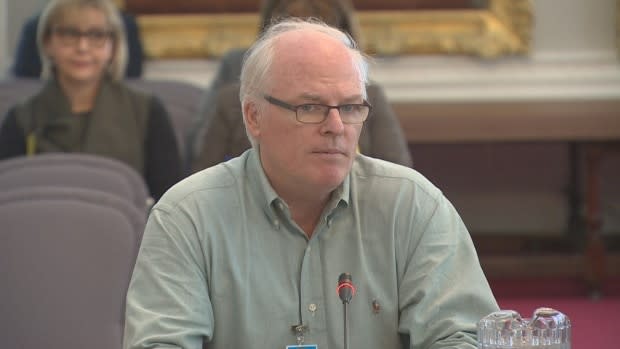Nova Scotia to begin presumed consent for organ donation next January
Nova Scotia will become the first province in the country with presumed consent for human organ and tissue donation beginning Jan. 18, 2021.
The law change was passed in April of 2019, and since then officials have worked to establish the necessary support within the system to handle what they believe could be as much as a 50 per cent increase in donation rates.
Dr. Stephen Beed, medical director of Nova Scotia's organ and tissue donation program, said there were times in the past when he wasn't certain the change would ever happen. Now he's filled with hope for what the new law will mean.
"I fully expect that we're going to have the best donation rates in the country in a few years. That's my objective," he said.
"I want to be able to provide the best opportunity we can for Nova Scotians by having the best program in the country, and that's where I want us to be. Now we have the support to do it."
A spokesperson for Premier Stephen McNeil said the additional resources for and changes to the program will cost about $4 million.
"This includes three programs – organ donation, transplantation and tissue bank services," Kristina Shannon said in an email. "The premier is committed to this program."
Family can still veto donation
The donor registration rate in the province is about 53 per cent, which is low but still well ahead of some other provinces. Beed said a much higher public support level for donations (about 90 per cent) was one of the reasons to push for the opt-out approach
People who do not want to be donors can opt out by going to www.novascotia.ca/organtissuedonation or by calling Medical Services Insurance (MSI) at 1-800-563-8880. Anyone can change their decision at any time. Presumed consent does not apply to anyone younger than 19, anyone who lacks decision-making capacity or anyone who has lived in the province for less than 12 months.
Health-care teams still have to speak with next of kin before a donation can happen.

According to the province, 108 Nova Scotians were waiting for an organ transplant as of June 29. Last year, 53 Nova Scotians received organ transplants.
Getting the program ready to accommodate increased capacity required hiring more people.
Beed said increased funding from the province meant the program could create space for a new donor co-ordinator, clinical specialist, family support liaison person and new donation physicians, as well as the development of a database.
'A unique opportunity'
Although the COVID-19 pandemic has slowed the process in some cases, most positions have been filled, including four new donation physicians who will be based in the Annapolis Valley, Cape Breton and Halifax. Beed said there is also a commitment in the coming years to hire several more donation physicians, all of whom will work part-time along with their regular critical care duties.
These people will make sure the teams in their respective regions are educated and informed about donation-related issues and that the necessary administrative work is happening. They will also be a local resource if a specific donation opportunity presents itself.
"What we're really hoping is to put expertise in the zones that will enable the entire health-care team in that zone to focus on donation-related issues," said Beed. Since the law was passed last year, Beed said they've seen a general increase in interest in donations within the province.
Although that means the message is getting out on some level, on Tuesday a new public awareness campaign was also launched. Beed said he also knows people outside the province are watching what's happening here, too.
He knows of at least four provincial governments that are closely following Nova Scotia's progress.
"It's not that many opportunities you get to try to, at least in a tiny way, transform the system you're working in. This is a unique opportunity."

